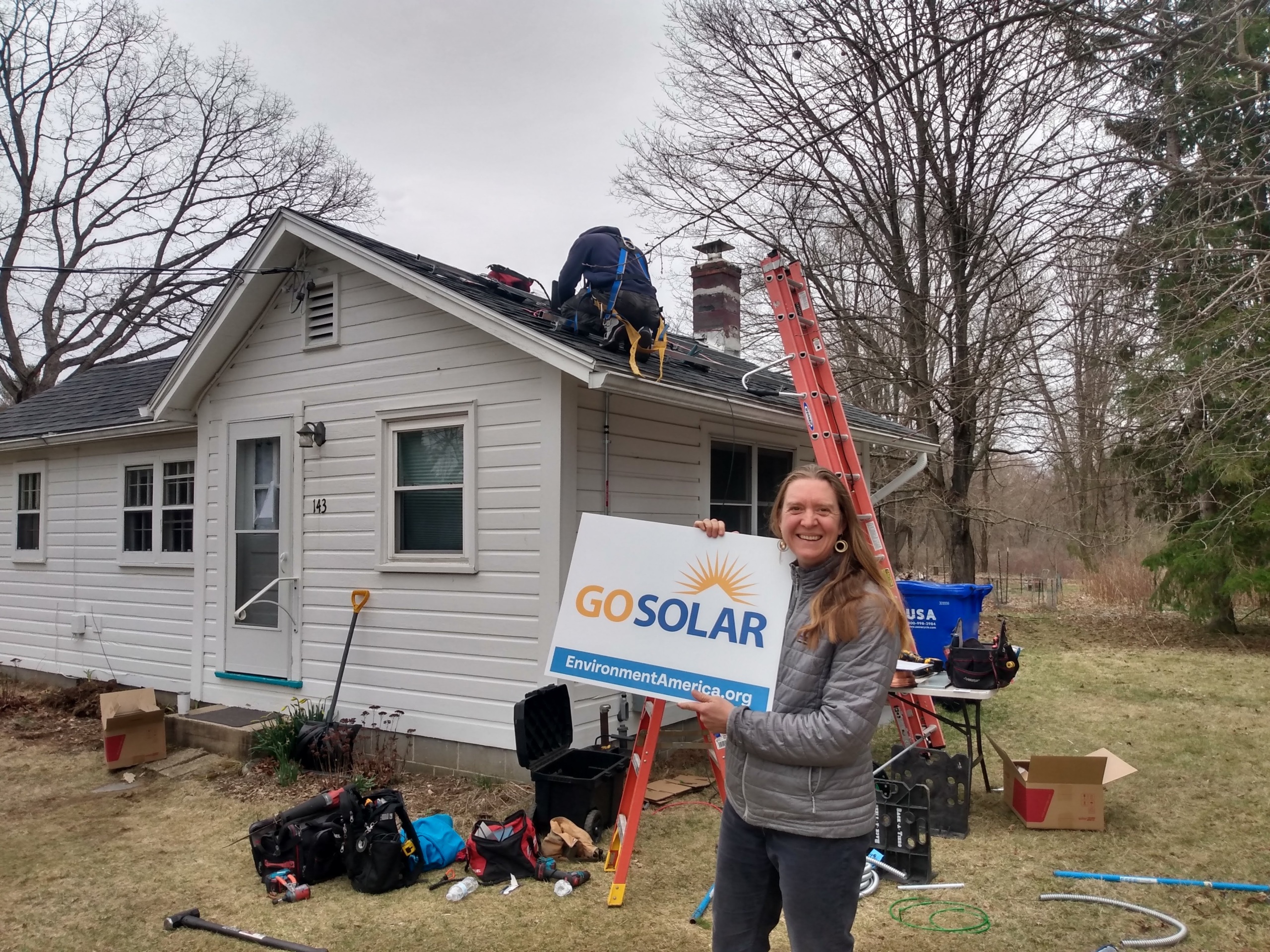The special role of rooftop solar
While installing large ground-mounted solar arrays can require developing open spaces, rooftop solar has a critical role to play in Tennessee’s energy future. Installing more rooftop solar can increase renewable electricity generation while protecting the state’s open spaces and helping to make communities more resilient to disruptions to the power grid.
Rooftop solar improves resiliency
Tennessee has seen its fair share of severe storms and flooding associated with increasingly extreme weather, often leading to power outages. While energy infrastructure is not invincible, rooftop solar panels (especially when coupled with battery storage) improve the resiliency of our electric grid in the face of increasingly volatile and unpredictable weather. The more clean energy sources generate power from different locations throughout the state, the less we have to rely on big centralized power plants and long distance power lines that are susceptible to outages during poor weather.
Rooftop solar reduces air pollution
The Tennessee Valley Authority operates many coal and gas burning power plants in the state. These power plants release global warming pollution and other pollutants that make the air unhealthy to breathe. Coal and gas-burning power plants in Tennessee release mercury, sulfur dioxide, nitrogen oxide and other particulate matter into the air. According to Trouble in the Air, millions of people in more than ten Tennessee jurisdictions were exposed to unsafe levels of particulate pollution or ozone for more than a month in 2018. Air pollution is linked to health problems including respiratory illness, heart attack, stroke, cancer and mental health problems.
In contrast, harnessing the rays of the sun with solar panels doesn’t emit any health-harming pollution.
Solar on Tennessee’s warehouses
The flat, open, sunny roofs of medium and large warehouses and distribution centers are perfect locations for solar panels and Tennessee has lots of warehouses just waiting to generate clean energy.
According to Solar on Warehouses, Tennessee has more than 9,000 medium and large warehouses with 175 million square feet of rooftop space suitable for solar panel installations. Putting solar on all of Tennessee’s warehouse roofs could produce enough electricity to power 225,000 homes, nearly tripling the state’s solar capacity in 2022.
Every warehouse without solar panels on its roof is a wasted opportunity. Solar panels on the nation’s warehouses benefit businesses, electricity customers, the electric grid and the environment. So, why don’t more warehouses have solar panels? In part, it’s because the owners of these warehouses haven’t committed to it.
Why FedEx should lead on rooftop solar
FedEx, one of the nation’s largest and most notable shipping companies, not only has its world headquarters in Memphis Tennessee, but also has 8 ground terminal facilities in the state. The company has a goal of reaching carbon neutrality by 2040, but has yet to announce a rooftop solar goal as a means to get there. The lower costs of going solar coupled with large flat rooftops creates a golden opportunity for FedEx.
FedEx going solar would not only be great for Tennessee, but it could help the entire country get more of its energy from pollution-free sources like the sun and improve resiliency nationwide. The company could also start a trend among other warehouse and shipping businesses which results in more warehouses making better use of all of that rooftop space.
FedEx owns and operates over 5,000 facilities with 680 ground facilities nationwide. These ground facilities have a combined rooftop area of over 112 million square feet which could be used to generate clean energy. There’s enough rooftop space on U.S. FedEx facilities to power almost 20 million homes.
As FedEx works to meet its goal of carbon neutrality by 2040, solar panel installations on its warehouse roofs are a no-brainer to help them get there.
That’s why we are calling on FedEx to publicly commit to a goal of installing solar on all viable warehouse roofs and parking lots by 2035, and require or incentivize companies they do business with to make rooftop solar commitments as well.

